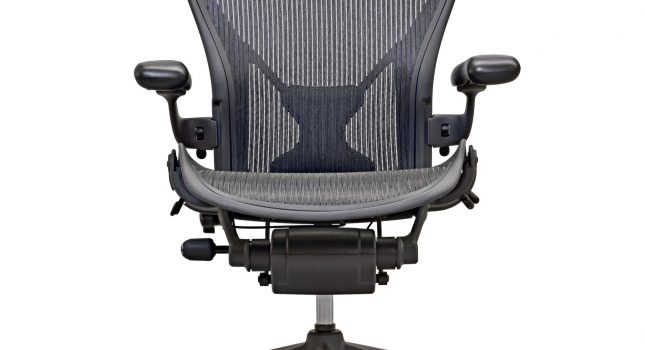
Spending Money on Chairs and Computers
Almost exactly twenty years ago, I arrived in San Francisco to start working at my first startup, Flycast Communications. Flycast was led by Rick Thompson and Larry Braitman, two gentlemen from whom I learned a lot, and this morning, I’m thinking about something Rick said way back then. We were a small startup with zero money, but Rick was always willing to spend freely on the best chairs and computers.
Despite having one bathroom for seventy-odd people, everyone at Flycast sat in really nice Aeron chairs, and worked on the best machines there were. Rick’s perspective was that these were the basic, day-to-day tools everyone needed to get their work done, and it made a lot of sense for them to be the best available. If a cheaper computer slowed an engineer down by 5%, the savings weren’t worth it. I think there’s a business development lesson in this — seek out, find and eliminate anything that’s making your day-to-day business development work harder. You may be surprised.
In the past few weeks, I’ve made several changes in what you could call my infrastructure. For starters, I replaced a three year-old laptop with a new, not inexpensive, screamingly fast new Dell machine. I replaced my glasses, and added a new pair specifically designed for sitting in front of a computer all day. I also moved into a new coworking space that’s a lot quieter, more work-focused and more professional than my old one. This includes sitting right next to (like ten feet away from) a small data center, so the Internet here is also screamingly fast.
It’s made a big difference.
And it’s been kind of a revelation. There were a lot of little things in my day-to-day work life that were basically unnecessary, unnoticed hindrances. I didn’t realize they were as big a deal as they turned out to be. Gradually, over the months, like the proverbial frog in the proverbial pan of gradually heating water, I got used to this stuff. My old laptop would take a long time to start, and I started developing the habit of accommodating it by going and doing something else while it booted up — making coffee, or whatever. Which slowed me down, distracted me, and was sort of a hindrance, but I just got used to it.
Now that I have this new machine that starts in about three seconds, I just sit down, push the button, and get going. And by replacing several similarly inadequate tools, I have suddenly made my work days much more productive, my life a lot calmer, and introduced a degree of predictability that I never knew was missing.
This principle applies in every profession, of course. My friend John Peck is an artist, spends all day drawing, and uses this expensive, rare charcoal made from French willow wood (not kidding) because it’s the best. Pilots wear Ray-Ban sunglasses because they’re the best, and seeing clearly is a fundamental part of their jobs. My other friend Elliott installs windows, and spends a lot of money on his truck, because his business depends on it, and a balky truck makes his work a lot harder.
Another example of this in my case is my computer bag. Mine is from Tumi, and it was ridiculously expensive when I got it — like $500 or so. However — it looks amazing. It’s incredibly durable — I have had it for ten years, and the zippers are still in great shape. It’s brilliantly designed to hold everything I need. It fits nicely underneath airline seats and in the overhead bins, but it easy to open and get stuff out of. It’s an expensive, functional tool, and it was worth every dime. The bag has stood up to everything I can throw at it.
I think a lot of professionals struggle with business development because, in part, they overlook the basics. At the most fundamental level, this means being physically and mentally prepared for the demands of the work — rested, fit, calm, organized. But it also includes having the right tools — the right phone, the right computer, the right everything to make the work they do — the typing, the talking, the thinking — as easy as possible, or at least not any harder than necessary.
And start with computers and chairs.
